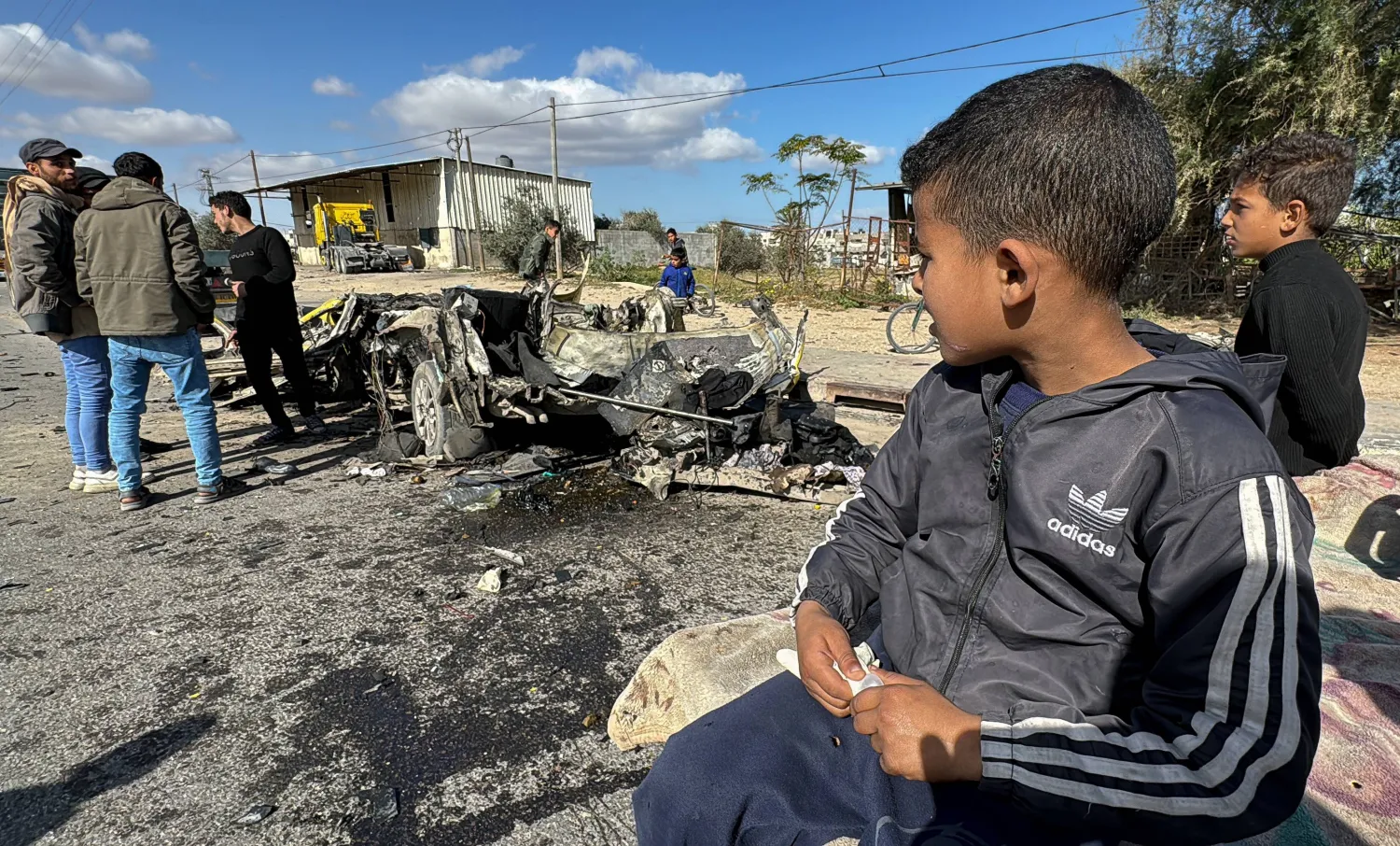A US Army vessel carrying equipment to build a temporary pier in Gaza was heading to the Mediterranean on Sunday, after US President Joe Biden announced plans to increase aid deliveries by sea to the besieged enclave where hundreds of thousands of Palestinians are going hungry.
The new push for aid came as the Muslim holy month of Ramadan was set to begin Monday in much of the world after officials in Saudi Arabia saw the crescent moon. Hopes for a new cease-fire by Ramadan faded days ago with negotiations apparently stalled, the Associated Press said.
The opening of the sea corridor, along with airdrops by the US, Jordan and others, reflected growing alarm over Gaza’s deadly humanitarian crisis and a new willingness to bypass Israeli control over land shipments. But aid officials say that air and sea deliveries can’t make up for a shortage of land routes. Aid trucks entering Gaza daily are far below the 500 entering before the war.
A ship belonging to Spanish aid group Open Arms and carrying 200 tons of food aid was expected to make a pilot voyage to Gaza from nearby Cyprus “as soon as possible,” but not Sunday, said Linda Roth, a spokesperson for partner organization World Central Kitchen. There was no explanation after Cyprus’ president had said it would leave then.
Israel says it welcomes the sea deliveries and would inspect Gaza-bound cargo before it leaves Cyprus. Israeli Defense Minister Yoav Gallant reviewed preparatory work off Gaza's coast on Sunday.
Biden has stepped up public criticism of Israeli Prime Minister Benjamin Netanyahu, saying he believes that Netanyahu is “hurting Israel more than helping Israel” in his approach to the Israel-Hamas war in Gaza, now in its sixth month.
Speaking on Saturday to MSNBC, the US president expressed support for Israel’s right to pursue Hamas after the group’s Oct. 7 attack on southern Israel. But Biden said that Netanyahu “must pay more attention to the innocent lives being lost.” He added that “you cannot have 30,000 more Palestinians dead."
The Health Ministry in Gaza said that at least 31,045 Palestinians have been killed since the war began. The ministry doesn’t differentiate between civilians and combatants in its count, but says that women and children make up two-thirds of the dead. The ministry is part of the Hamas-run government, and its figures from previous wars have largely matched those of UN and independent experts.
Palestinian casualties continued to rise. The Civil Defense Department said 10 people were killed Sunday in an Israeli airstrike on a house of the Ashour family in the Tal al-Hawa area of Gaza City. Dust-covered bodies were placed onto blankets.
Elsewhere, the bodies of 15 people, including women and children, were taken to the main hospital in the central town of Deir al-Balah, according to an Associated Press journalist. Relatives said they were killed by Israeli artillery fire toward a tent camp for displaced Palestinians in the coastal area near the southern city of Khan Younis.
Israel rarely comments on specific incidents during the war. It maintains that Hamas is responsible for civilian casualties, because the group operates from within civilian areas.
Meanwhile, US efforts began to set up the temporary pier in Gaza for sea deliveries. US Central Command said that a first US Army vessel, the General Frank S. Besson, left a base in Virginia on Saturday and was on its way to the Eastern Mediterranean with equipment for construction.
US officials said that it would likely be weeks before the pier is operational.
The sea corridor is backed by the European Union together with the United States, the United Arab Emirates and other countries. The European Commission has said that UN agencies and the Red Cross will play a role.
The ship in Cyprus is expected to take two to three days to arrive at an undisclosed location in Gaza. The World Central Kitchen spokesperson said that construction work began Sunday on the jetty for it.
A member of the charity said on X, formerly Twitter, that once the ship's barge reaches Gaza, aid would be offloaded by a crane, placed on trucks and driven to northern Gaza, which has been largely cut off from aid shipments and was the first focus of Israel's military offensive.
Israel declared war on Oct. 7 after Hamas killed about 1,200 people, mostly civilians, and took 250 hostages. Israel's air and ground offensive has devastated large parts of Gaza and displaced about 80% of the population of 2.3 million.
The US and regional mediators Egypt and Qatar had hoped to have a six-week cease-fire in place by Ramadan. A deal would have seen Hamas release some Israeli hostages, Israel release some Palestinian prisoners and aid groups be given access for a major influx of aid.
In a speech broadcast Sunday, Hamas’ top leader Ismail Haniyeh blamed Israel for the failure to reach a deal before Ramadan and said that the group is keen to resume negotiations in any framework as long as it guarantees a permanent cease-fire.
An Effort to Get Aid to Gaza by Sea is Moving ahead. But the First Ship is Still Waiting in Cyprus

A child looks on as Palestinians inspect the site of an Israeli strike on a car, amid the ongoing conflict between Israel and the Palestinian group Hamas, in Rafah in the southern Gaza Strip March 10, 2024. REUTERS/Bassam Masoud

An Effort to Get Aid to Gaza by Sea is Moving ahead. But the First Ship is Still Waiting in Cyprus

A child looks on as Palestinians inspect the site of an Israeli strike on a car, amid the ongoing conflict between Israel and the Palestinian group Hamas, in Rafah in the southern Gaza Strip March 10, 2024. REUTERS/Bassam Masoud
لم تشترك بعد
انشئ حساباً خاصاً بك لتحصل على أخبار مخصصة لك ولتتمتع بخاصية حفظ المقالات وتتلقى نشراتنا البريدية المتنوعة







